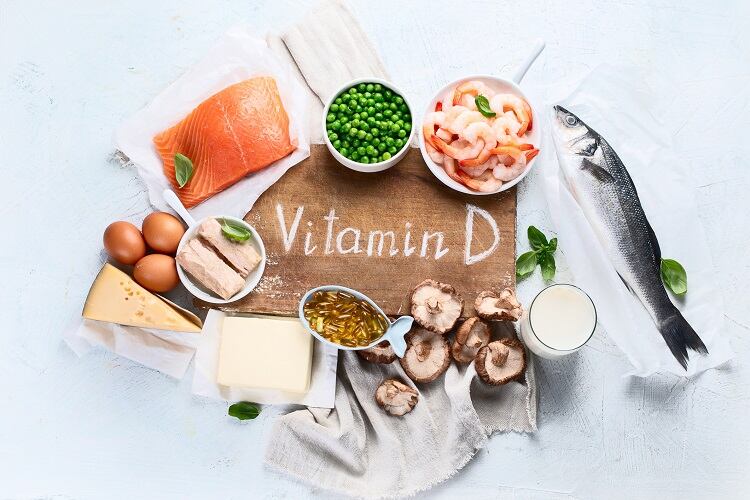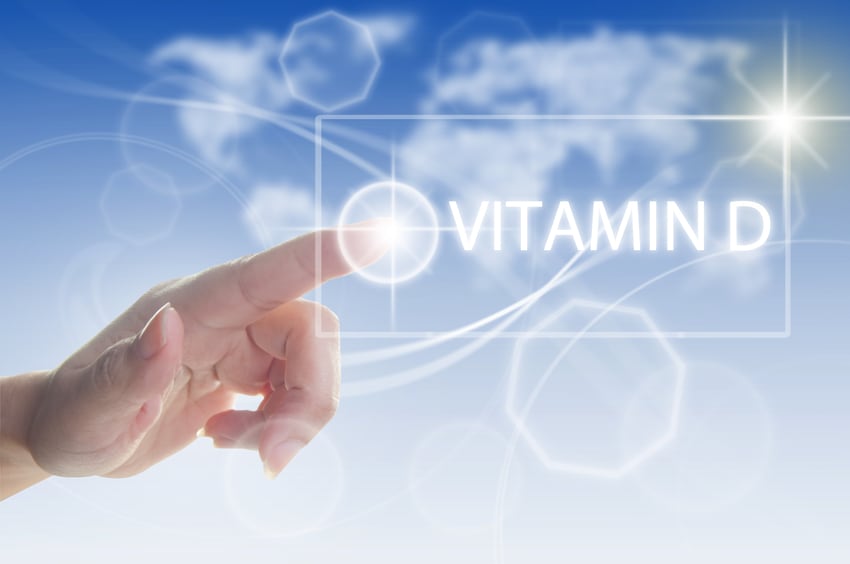ANSES, the French Agency for Food, Environmental and Occupational Health and Safety, has stressed the importance of adequate vitamin D intake all year round.
However, during lockdown, the food safety agency suggests sufficient vitamin D intake is of particular importance.
What is vitamin D and why do we need it?
Vitamin D is a fat-soluble vitamin that people need to regulate the amount of calcium and phosphate in the body.
Depending on diet and sun exposure, vitamin D levels vary significantly. In the UK, for example, the National Diet and Nutrition Survey conducted in 2014 found one in five Brits is deficient in vitamin D.
This is largely due to climate. One way humans get vitamin D is from direct sunlight on the skin. Yet from October to March, when the sun’s strength is low, UV wavelength is insufficient to spark vitamin D production.
A lack of vitamin D can lead to bone deformities such as rickets and osteomalacia in children, as well as cardiovascular diseases, depression, hair loss and muscle weakness.
“Vitamin D plays a key role in maintaining bone and muscle tissue and boosting our immune system,” explained ANSES. “In the current COVID-19 epidemic, our immune defences might need to work particularly hard.”
Further, as inadequate intake of vitamin D can lead to reduced bone mass, it is also associated with a greater risk of fractures. “These risks are particularly high where the level of physical activity is low, as may be the case during lockdown,” the agency continued.
Ensuring adequate intake
With populations being told to stay at home, and limit the amount of time spent in public, how can consumers ensure they are getting enough vitamin D?
The vitamin is found primarily in fatty food sources, such as oily fish, including herring, sardines, salmon and mackerel, offal (particularly liver), egg yolk, dairy products fortified with vitamin D, butter and margarine, cheese, and meat.
ANSES recommends eating two portions of fish a week, of which one portion oily fish.
The food safety agency is particularly reiterating the importance of sufficient vitamin D intake through diet for people at risk. Older people and those with olive or dark skin are particularly susceptible to vitamin D deficiency. Menopausal women are also at risk, as they can have greater bone demineralisation prompted by hormonal disruption.
ANSES cautioned that taking food supplements containing vitamin D may increase intake to excessive levels. This can lead to hypercalcaemia – a build-up of calcium in the blood – and result in tissue calcification, with consequences for the heart and kidneys.
Diet aside, ANSES recommends exposing one’s skin to the sun for 15 minutes every day, from a garden, terrace, balcony or window.
“If you are in lockdown at home, particularly if you do not have a garden, it is more difficult to synthesise vitamin D through exposure to sunlight. In the spring, exposing your hands, forearms and face to the sun every day for between 15 and 20 minutes, nevertheless provides you with the daily intake of vitamin D necessary to cover the needs of a healthy adult.”




